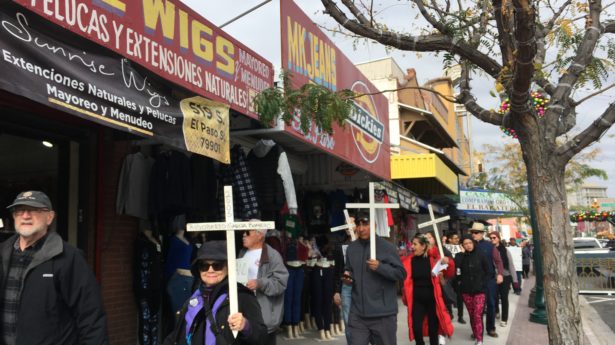The Unitarian Universalist Service Committee advances human rights through grassroots collaborations.
Your Comments Needed: “Public Charge” Immigration Rule is Unfair and Callous

By on December 3, 2018
The Trump administration has drafted a new rule that would vastly expand the government’s ability to exclude immigrants on the basis of poverty and ill health, keeping family members apart and cruelly stigmatizing working-class immigrants.
Specifically, the proposed Department of Homeland Security (DHS) rule – called “Inadmissibility on Public Charge Grounds” – would add to the list of factors DHS can use to deny entry and status to those it deems at risk of becoming a “public charge.” The list of “negatively weighted factors” would now include health conditions, use of public benefits, having a low income, being unable to afford unsubsidized health insurance, lack of English proficiency, and more.
Stigmatizing poverty and separating families are wrong under any analysis. The administration needs to hear from you that this rule does not reflect our values. You can enter your comment against this proposed rule here. The deadline to submit is December 10.
Is there sample messaging?
Experience shows that comments work best when they are personal and speak from your own unique position and perspective. If you are in search of inspiration, however, check out UUSC’s statement on the public charge rule and our organizational comment calling on DHS to reconsider this rule.
Here are a few key points you might emphasize:
- The values of Unitarian Universalism and the Universal Declaration of Human Rights tell us that all people have value, regardless of wealth or income, and that family unity should be upheld in our immigration system.
- Healthcare, education, and food security are human rights that should be available to all. Using social services that provide access to these rights should never be grounds for stigmatizing and excluding people.
- Being poor or not speaking English have nothing to do with a person’s ability to make vital contributions to our society. Perhaps share stories from your own families’ immigrant past, if applicable.
- Denying opportunities to people because they aren’t starting from a place of wealth and privilege flies in the face of our democratic ideals as a nation and the words on our Statue of Liberty.
But do public comments matter?
The answer is a big yes! Under federal law, government agencies are duty-bound to read and take into account the entire public record when making a new regulation, and that includes your comments. If they fail to reflect the public’s feedback in the final version, the new rule could be vulnerable to legal challenge under the Administrative Procedures Act. So, by submitting public comments, you can play a direct role in government decision-making around this rule.
The public comment period closes on International Human Rights Day, which this year marks the 70th anniversary of the Universal Declaration of Human Rights. We have the chance this week to protect the legacy of that crucial document by defeating a regulation that would undermine the human rights of immigrant working-class families.
Photo Credit: Oleg Albinsky

